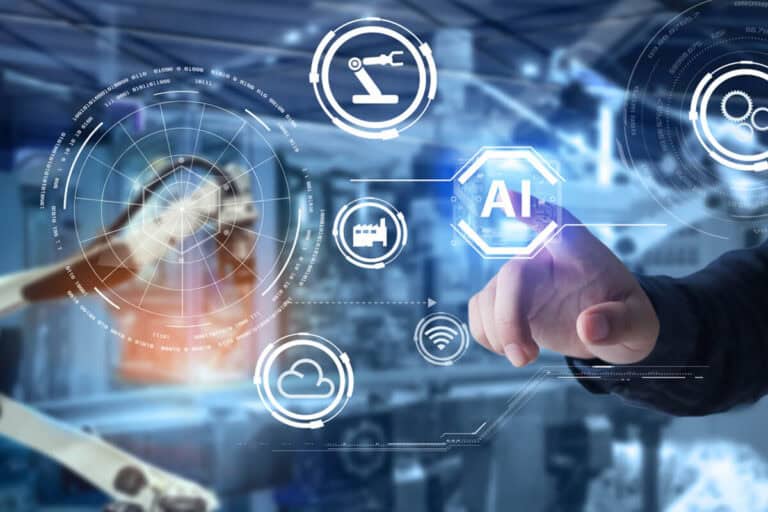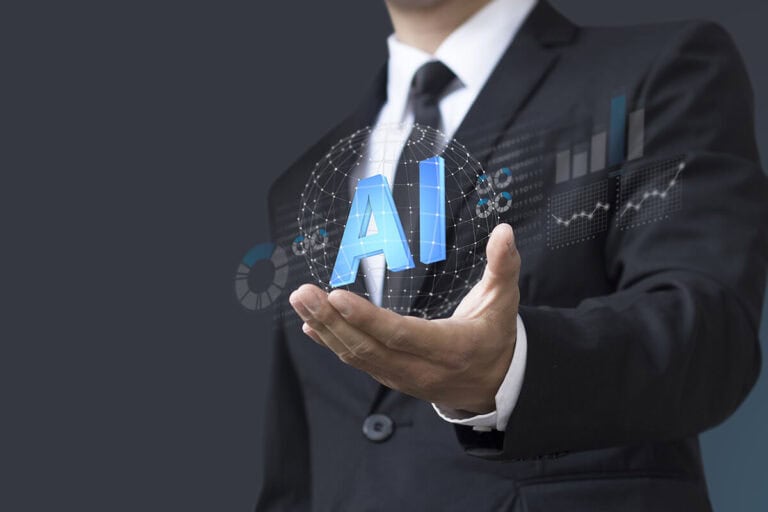Artificial Intelligence (AI) has revolutionized numerous industrial sectors, leaving a remarkable and positive impact. The education sector is no exception, as educational institutions worldwide harness AI’s power for various purposes. This transformative technology has brought about a paradigm shift in how students, teachers, parents, and educational institutions perceive education. Consequently, with the latest education trends, there is a growing interest in adopting custom eLearning solutions incorporating Artificial Intelligence. Moreover, with IoT with Python, Ruby on Rails, and DevOps training, professionals are reshaping the education industry to the next level.
Table of Contents
ToggleCurious to witness the tangible influence of AI in education? Let’s delve into some statistics to elucidate the utilization of AI in the educational realm:
Image Source- MarketResearchFuture
- A report from Global Market Insights projects that AI in the education market is expected to surpass $80 billion by 2030.
- According to the Markets and Markets report, the global adoption of AI in the education market is anticipated to reach $3,683.5 million in 2023.
Whoa!! That’s an immense impact. Besides various other benefits, educators can now utilize real-life examples to enhance their student’s learning experience, thanks to AI technology. It has revolutionized teaching methods, offering remarkable opportunities for transformation within the educational landscape.
Need further convincing? Let’s embark on a journey to discover the remarkable applications of Artificial Intelligence in education.
Now, let us explore the precise ways in which artificial intelligence is influencing the education industry and why such substantial financial resources are being allocated toward integrating AI into education.
- Personalized Learning:
AI is revolutionizing education through personalized learning experiences, marking a significant transformation in the field. Utilizing AI-powered tools and algorithms, vast amounts of data can be analyzed to gain insights into each student’s distinct strengths, weaknesses, and learning styles. This enables the tailoring of content, pacing, and assessments to suit individual students, paving the way for personalized learning paths that maximize engagement and promote long-term knowledge retention. With AI as a guiding force, education becomes a truly customized and effective journey for each student.
- Creating Courses:
AI plays a pivotal role in developing custom eLearning solutions that aid educators in bridging the gap between their lectures and study materials. Such software assists in creating personalized courses and provides insights for enhancing educational content. Notably, platforms like Coursera, a renowned provider of online courses, already employ AI technology to notify instructors when students submit incorrect answers to questions.
- AI-Powered Tutors:
While the concept of an AI-based tutor may still seem like a distant dream, the rapid advancement of technology suggests it may become a reality sooner than expected. Presently, AI-based tutoring tools are available in the market that assists students in learning subjects like mathematics, basic English, and more. As AI continues to progress, the development of sophisticated AI tutors holds promising potential.
- Intelligent Tutoring Systems:
Intelligent tutoring systems powered by AI have the capacity to transform the conventional classroom environment. These systems possess the ability to offer personalized guidance and support to students, effectively emulating the role of a human tutor. Through the utilization of machine learning algorithms, they dynamically adjust their teaching approaches to cater to the specific needs of individual students, providing targeted assistance and real-time feedback. This amalgamation of AI and education creates an innovative learning experience finely tailored to each student’s requirements, fostering enhanced engagement and comprehension.
- Automated Grading and Feedback:
The introduction of AI has streamlined the task of grading assignments and delivering feedback to students. Automated grading systems, enhanced with natural language processing capabilities, can evaluate written work, offer instant feedback, and even identify instances of plagiarism. This automation saves valuable time for teachers, enabling them to dedicate their efforts to delivering personalized instruction and mentorship to students. As a result, educators can devote more attention to individual student needs, fostering a more effective and engaging learning environment.
- Enhanced Administrative Tasks:
AI technology has also streamlined administrative tasks within educational institutions. Intelligent chatbots and virtual assistants can handle routine inquiries, such as admissions, scheduling, and general information, freeing up administrative staff to focus on more complex matters. This automation improves efficiency, reduces response times, and enhances overall operational effectiveness.
- Smart Content and Virtual Reality:
AI enables the creation of smart content that adapts to individual learners. AI algorithms can customize educational materials by analyzing data and feedback to suit students’ specific needs and preferences. Additionally, virtual reality (VR) and augmented reality (AR) applications powered by AI provide immersive learning experiences, allowing students to explore complex subjects in a highly interactive and engaging manner.
- Data-Driven Insights:
AI’s data analysis capabilities provide educators and policymakers valuable insights into student performance, learning patterns, and curriculum effectiveness. By harnessing big data, AI algorithms can identify trends, predict student outcomes, and inform evidence-based decision-making. This data-driven approach enables educators to implement targeted interventions and continuously improve educational practices.
Conclusion:
The incorporation of AI and associated programming languages like Python in the education sector is reshaping traditional educational methods and opening up exciting opportunities for personalized, engaging, and efficient learning journeys. With advancements such as personalized learning paths, intelligent tutoring systems, automated grading, and administrative support, AI is revolutionizing education across all levels.
By harnessing the capabilities of AI, educators can empower students with the essential skills and knowledge required to thrive in the digital age. As AI progresses, its potential to positively transform education becomes increasingly remarkable, paving the way for an even brighter future in learning and development.
FAQ
A: AI is revolutionizing the education industry by offering innovative solutions to enhance teaching, learning, and administrative processes. It uses machine learning algorithms and natural language processing to personalize learning experiences, automate administrative tasks, and provide valuable insights for educators and students.
A: AI-driven adaptive learning platforms analyze individual student data to identify strengths, weaknesses, and learning patterns. Based on this analysis, AI tailors the curriculum and learning materials to meet each student’s unique needs, pacing, and learning style. This personalized approach helps students grasp concepts more effectively and improves academic performance.
A: AI assists educators by automating administrative tasks such as grading, scheduling, and data management. This frees up their time to deliver quality instruction and provide individualized student support. Additionally, AI-powered analytics can help identify trends and patterns in educational data, allowing educators to make data-informed decisions to enhance teaching methods.
A: Yes, AI can significantly improve student engagement and retention rates. AI-powered educational tools often incorporate gamification elements, interactive content, and real-time feedback, making learning more engaging and enjoyable for students. Furthermore, personalized learning experiences help maintain student interest, leading to increased motivation and improved knowledge retention.
A: In online education and e-learning platforms, AI is used to optimize content delivery, recommend relevant courses based on user preferences, and assess student performance through automated assessments and quizzes. AI chatbots and virtual tutors are also employed to provide instant support, answer student queries, and offer personalized learning pathways for students. This creates a more efficient and interactive learning environment for online learners.





